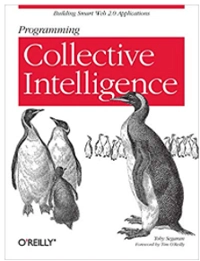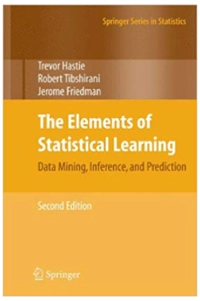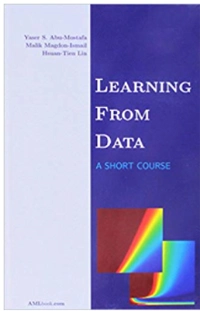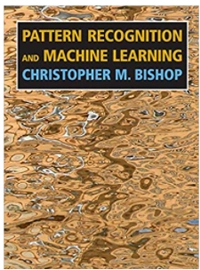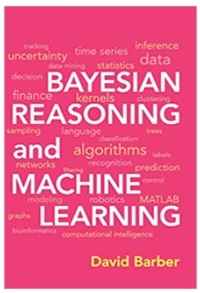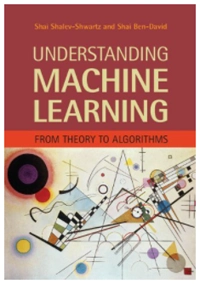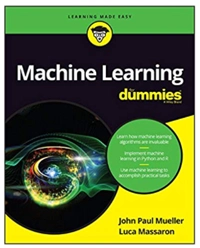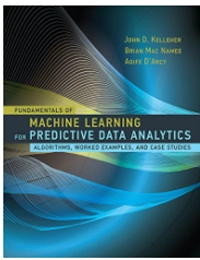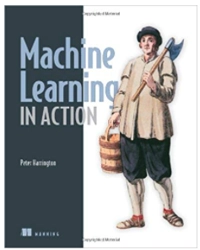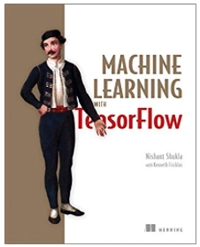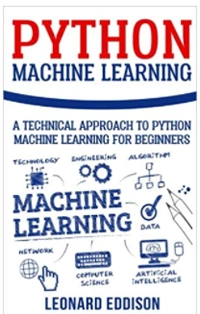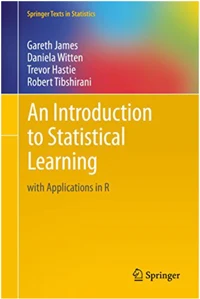25 Best Books for Machine Learning
FREE Online Courses: Elevate Skills, Zero Cost. Enroll Now!
Machine learning has bestowed humanity with the power to run tasks in an automated and highly reliable manner. It allows the improvement of things that we already perform by studying a continuous stream of data related to that same task. It has a wide array of applications that belong to different fields, that ranges from space research to digital marketing to entertainment.
Machine learning also forms the basis for the fabrication of artificial intelligence models. However, we are not done with the improvements of machines capable. These models are still inefficient at throwing judgments on their own. We still have to go a long way to reach the fully automated phase of Machine Learning. However, the possibilities generated along the way for the improvements of these models according to our thinking, or even beyond our thinking limits, are endless.
Therefore, it is the best time to pick up and learn machine learning to develop this technology manifold. It goes without saying that machine learning is a complex field and requires a lot of training to handle it efficiently. However, that doesn’t imply that it can’t be learned in an easy and comprehensive way.
PythonGeeks brings to you, a curated list of the top-rated books that will help you in your journey of mastering Machine Learning concepts. In this article, we will first talk about the topic of machine learning that is beneficial to us and which sectors use this for what purpose. We will then move forward with our list of books that will give you a brief idea of these books. Therefore, let’s dive straight into the article.
Who is using Machine Learning and what are they using it for?
Machine learning models are deployed for an extensive range of applications, today. As an example, consider the recommendation engine that powers the news feed of Facebook. Without any discussions, it is one of the most well-regarded examples of Machine Learning in action today.
This recommendation system is one of the major uses of Machine Learning. Apart from this, many leading tech giants are using it for a variety of other purposes like CRM, personal assistants, while the list goes on.
Now that we are thorough with the introductory part, let us look at the books that would help you in your journey of mastering Machine Learning.
Top 25 Machine Learning Books
1. The Hundred Page Machine Learning Book
Aren’t you surprised that merely a 100 pages book is sufficient enough to help us understand the complexities of Machine Learning? The Hundred-Page Machine Learning Book written by Andriy Burkov is his attempt to realize the same. Andriy has written this book in an easy-to-comprehend manner, the machine learning book is endorsed by reputed thought leaders to the likes of the Director of Research at the leading tech giant Google, Peter Norvig, and Sujeet Varakhedi, Head of Engineering at eBay. It is amongst the top-selling books for Machine Learning to start with.
With just a thorough reading of the book, you will be able to build and appreciate the complexities of AI systems, get an idea of an ML-based interview, and even help you kick-start your very own ml-based business. The book, however, is not meant for absolute machine learning beginners since it assumes that you are well versed with the technicalities. If you’re looking for something more preliminary and basic, then this is not your top choice.
Topics covered in the book are:
- Anatomy of a learning algorithm
- Fundamental algorithms
- Neural networks and deep learning
- Other forms of learning
- Supervised learning and unsupervised learning
2. Programming Collective Intelligence
This should be amongst your top choices if you are a beginner at Machine Learning. This title was articulated by Toby Segaran in 2007 when data science and Machine Learning were not at their peak as they are in the present. The book supports the use of Python as a medium for fabricating Machine Learning models and rendering the basic concepts to the reader.
The main focus of the books revolves around the implementation of Machine Learning concepts rather than merely introducing the concepts. The book helps the reader in practical applications of Machine Learning like gathering data from the websites, processing them according to our needs, and interfering with this data. Each chapter delivers the algorithms in an effective and efficient way.
Topics Covered in the book are:
- Bayesian filtering
- Collaborative filtering techniques
- Evolving intelligence for problem-solving
- Methods for detecting groups or patterns
- Non-negative matrix factorization
- Search engine algorithms
3. Machine Learning for Hackers: Case Studies and Algorithms to Get you Started
The topics of this book, written collaboratively by Drew Convey and John White, are mainly articulated for the experienced programmers to help them in crunching the data. In the general context of this, the meaning of the word revolves around the term adroit mathematician. If you are a good R programmer or have a decent knowledge of R programming, then this book will certainly help you to its best of efficiency. It will also help you in using R for data wrangling.
The main benefit of the book is the use of case studies to help readers understand the importance of using Machine Learning algorithms. Rather than throwing you off guard with the complexities of mathematics that Machine Learning deals with, the book helps you with the concepts using real-life cases.
Topics Covered in the Book are:
- Developing a naïve Bayesian classifier
- Linear regression
- Optimization techniques
- Using R for querying data
4. Machine Learning
If you are a beginner at Machine Learning, then this book will certainly help you out in the best ways. Written by Tom M. Mitchell, this book bestows the reader with an in-depth knowledge of the basic ML concepts with pseudo-code summaries of the algorithms. The book is filled with real-life examples and case studies which act as a thorough guide for the readers.
If you are a beginner at ML concepts, then this book is your best buddy. The book helps the reader with the basics of ML with a comprehensive explanation of the topics, project-oriented assignments, and much more.
Topics Covered in the book are:
- Genetic algorithms
- Inductive logic programming
- Introduction to primary approaches to machine learning
- Machine learning concepts and techniques
- Re-enforcement learning
5. The Elements of Statistical Learning
If you are more interested in the statistical side of ML, rather than dwelling on the other concepts, then this book, written by Trevor Hastie, Robert Tibshirani, and Jerome Friedman, is a must-have for you. The book helps the reader to get a thorough derivation for defining the underlying logic of any ML algorithm. The prerequisite for reading this book is a basic understanding of the concepts of Linear Algebra since the book assumes that you are not a beginner at statistics.
Topics covered in the book are:
- Ensemble learning
- High-dimensional problems
- Linear methods for classification and regression
- Model inference and averaging
- Neural networks
- Random forests
6. Learning from Data: A Short Course
Are you someone who is well-versed in the arena of Engineering Mathematics and want to get a comprehensive guide for the ML concepts? If your answer is Yes, then this book, written by Yaser Abu Mostafa and others, is surely meant for you. Instead of pestering you with the complexities of the implementation of ML algorithms, this book helps you get into the nitty-gritty of the basics of ML using data processing.
The book helps you in better understanding the ML concepts with on-the-point explanations. The author of this book also has some online tutorials to help you get the concepts of this book in a better way.
Topics Covered in the book are:
- Error and Noise
- Kernel methods
- Overfitting
- Radial basis functions
- Regularization
7. Pattern Recognition and Machine Learning
This is yet another book that deals with the statistical and pattern recognition path of the ML journey, rather than dwelling on the beating around the bush path. Written by Christopher M. Bishop, this book demands a sound understanding of linear algebra and multivariate calculus to understand the concepts in a better way.
To give the reader a comprehensive introduction to the statistical part of pattern recognition, this book provides the reader with detailed practice exercises. In order to have an even better understanding, the reader might want to have an insight into the concepts of probability.
Topics covered in the book are:
- Approximate inference algorithms
- Bayesian methods
- Introduction to basic probability theory
- Introduction to pattern recognition and machine learning
8. Natural Language Processing with Python
As we know, NLP accounts as the backbone of the Machine Learning models. This book makes use of the Python programming language to give a thorough guide using NLTK for symbolic and statistical natural language processing. This book bestows the reader with detailed and powerful Python codes for the precise understanding of NLP using Python. It helps the readers in getting insight for accessing well-annotated datasets for analyzing unstructured data.
Topics Covered in the Book are:
- How human language works
- Integrate techniques from artificial intelligence and linguistics
- Linguistic data structures
- Natural Language Toolkit (NLTK)
- Parsing and semantic analysis
9. Bayesian Reasoning and Machine Learning
This book acts as the Bible for anyone who wants to enter the arena of Machine Learning. This book will help those readers who are not well-versed with the concepts of Linear Algebra and Calculus but still have a keen eye for ML topics. The book is full of well-explained examples and exercises for the readers. This book is useful for computer scientists as well as graduate or undergraduate CS students. Along with the book, you can also get access to some online resources and software packages associated with the book.
Topics Covered in the book are:
- Approximate interference
- Dynamic models
- The framework of graphical models
- Learning in probabilistic models
- Naive Bayes algorithm
- Probabilistic reasoning
10. Understanding Machine Learning
This book is a must-have for you if you are looking for a structured ML introduction. The book will help the readers with a thorough understanding of the fundamental theories and the algorithmic paradigms of ML. This book is a comprehensive guide for the basics of ML concepts. The book caters to the need of understanding the concepts of ML for an audience ranging from non-expert readers to experienced CS graduates.
Topics covered in the book are:
- The computational complexity of learning
- Convexity and stability
- Neural networks
- ML algorithms
- PAC-Bayes approach
- Stochastic gradient descent
11. Machine Learning for Absolute Beginners
As the name suggests, this book, written by Oliver Theobald, caters to the need of readers who have zero insights in the complexities of the ML algorithms and have a desire to get started with it. The book focuses on delivering an in-depth knowledge of ML introduction without prior knowledge of coding or mathematics. This book is a must-have if you are just beginning with the concepts of ML and want a toned-down definition of the concepts. The book is full of visual examples to help readers engage with the book.
Topics covered in the book are:
- Basics of neural networks
- Clustering
- Cross-validation
- Data scrubbing techniques
- Ensemble modeling
- Feature engineering
12. Machine Learning for Dummies
As the name of the book suggests, this book is meant for those who are a beginner at the ML journey and want to get familiar with the concepts of ML in a comprehensive way. The major benefit of the book lies in its effort for making the readers understand the concepts of ML using practical, real-life examples. The book extensively uses Python and R for the implementation of pattern recognition and training models. The book also gives an insight into the applications of ML-like email filters, fraud detection, internet ads, and so on.
Topics covered in the book are:
- Data preparation
- Machine learning techniques
- Supervised and unsupervised learning
- The machine learning cycle
- Training machine learning systems
13. Fundamentals of Machine Learning for Predictive Data Analytics
The book focuses upon using an array of statistical techniques that will analyze the current as well as past trends in order to predict future events based on them. The book focuses on providing an introduction to using ML for better predictive data analysis. To get the maximum benefit from this book, you need to have preliminary knowledge of the topics of predictive data analysis.
Topics covered in the book are:
- Error-based learning
- Information-based learning
- Probability-based learning
- Similarity-based learning
14. Machine Learning in Action
This book is yet another astonishing tool in the field of ML which caters to a wide range of audiences from undergraduate students to working professionals. The book not only gives you a thorough insight into the introductory topics but also covers the underlying topics in a comprehensive manner. This book also aids the programmers to get a motivation for writing their own code for acquiring data with the aim of analyzing it. The book makes use of Python as a tool to deliver efficient and effective codes.
Topics Covered in the book are:
- Basics of machine learning
- Big Data and MapReduce
- FP-growth
- K-means clustering
- Logistic regression
- Support vector machines
15. Data Mining: Practical Machine Learning Tools and Techniques
The books dwell the readers on the quest to understand pattern recognition with the preliminary knowledge of concepts of database, ML, and statistics. If you aim to learn the ML concepts along with the data mining theories, then this book is a must-have for you. This book mainly focuses on the technicalities of ML. The book tosses the idea of using ML concepts to acquire data and permuting the various combinations of inputs and outputs to analyze the results.
Topics Covered in the books are:
- Clustering
- Comparing data mining methods
- Instance-based learning
- Knowledge representation & clusters
- Linear models
- Predicting performance
- Statistical modeling
16. Machine Learning with TensorFlow
Used majorly for the programming of neural networks, TensorFlow is one of the top ML tools for math and data science libraries. This book, written by Nishant Shukla, gives the reader an insight into the practical programming experience of the ML models. The book makes use of the conventional classification, clustering, and prediction algorithms to explain the basics of ML. The book makes the reader, programming- ready for any of the ML tasks using TensorFlow.
Topics Covered in the book are:
- Autoencoders
- Convolutional, recurrent, reinforcement neural networks
- Deep learning
- Hidden Markov models
- Linear regression
- Reinforcement learning
17. Hands-On Machine Learning with Scikit-Learn and TensorFlow
If you are expecting a book that will walk you through the various concepts and tools that you will require to develop a smart and intelligent system, then your search ends at this book. The book demands experience in programming from the users to make it handy. The carefully articulated exercises help the readers to retain the concepts that they have covered till now. On completing the book, you will be able to design smart and intelligent systems.
Topics Covered in the book are:
- Deep neural networks
- Deep reinforcement learning
- Linear regression
- Training models, including decision trees, ensemble methods, random forests, and support vector machines
- Training neural nets
18. Introduction to Machine Learning with Python
Are you looking for a book that will walk you through the ML journey with the main focus on Data Science and Python? If yes, then this is the book that you have been looking for. The book focuses on teaching the learners, an efficient way to help them build their own ML solutions. This book shows really effective illustrations for the use of Python, SciKit-Learn as well as Matplotlib and NumPy libraries.
Topics covered in the book are:
- Advanced methods for model evaluation and parameter tuning
- Applications, fundamental concepts of machine learning
- Machine learning algorithms
- Methods for working with text data
- Pipelines for chaining models and encapsulating workflow
19. Machine Learning: A Probabilistic Perspective
Written in an informal way, this book is a fun guide for the introduction of ML with colored images, real-life problems, and case studies. Unlike other boring ML books, this book provides a model-based approach to teaching the concepts of ML. It makes use of graphical models for specifying ML models.
Topics covered in the book are:
- Conditional random fields
- Deep learning
- L1 regularization
- Optimization
20. Python Machine Learning
Based on covering the basics of the ML topics for beginners, this book focuses on the various branches of ML and their applications in the real world. The book also provides a guide for Python Programming and the usage of Python for developing ML algorithms. Once you are done with the book, you will be able to efficiently code in Python for the development of ML models.
Topics covered in the book are:
- Basics of artificial intelligence
- Decision trees
- Deep neural networks
- Fundamentals of the Python programming language
- Logistic regression
21. Machine Learning: The new AI
As it has been evident in the recent times, Machine Learning has an insane range of applications in modern times, ranging from product recommendations to voice recognition and even those that we do not commonly use like self-driving cars for instance. Keeping this in consideration, the book, Machine Learning: The New AI focuses mainly on basic Machine Learning, that ranges from the evolution to important learning algorithms along with their example applications.
22. Machine Learning: The Art and Science of Algorithms
If you are at the intermediate or becoming an expert level student in ML and perhaps want to go back to the basics approach for getting the concepts handy, then this book is the way to go for your problem. It does full justice to the incredible complexity and richness that Machine Learning depicts. Apart from this, it delivers quality content without losing sight of its unifying principles.
23. Deep Learning
Regarded as a very beginner-friendly book, it is a really powerful book that introduces you to a wide range of topics on Deep Learning while also delivering content-related aspects of Machine Learning.
Written by Ian Goodfellow, this book covers the fundamental concepts of DL thoroughly and explains the nitty-gritty invloved in this book from scratch, for a stronger foothold in the domain of Machine Learning.
24. Python Machine Learning
Written by Wahid Mirjalili, this book cuts straight to the practical implementation of the concepts, assuming that you are well-versed with the basics. The concepts in the book include thorough explanations of NumPy, Scikit-learn, TensorFlow2, SciPy and many more topics. The book tends to prepare you to undertake real-world challenges by helping you learn from the real-world challenges that the industry faces. It comprises various topics such as Dimensionality Reduction, Ensemble Learning, Regression, and Clustering Analysis, Neural Networks, and so on.
25. An Introduction to Statistical Learning
Written by Gareth James and others, this book demands some prior knowledge of linear regression and proves to be an excellent tool for understanding the concepts of Statistical Learning. It provides a balanced insight into how to make use of large and complex datasets and aims to educate a wide range of statisticians and non-statisticians alike and enable them to understand the data in their hands more accurately.
Conclusion
With that, we have reached the end of this article that talked about the various books that will help you in your journey of Machine Learning. As it has been said, a book can convey much more than what a mere thought can convey. Hope that this curated list from PythonGeeks will help you find your perfect book for Machine Learning.

